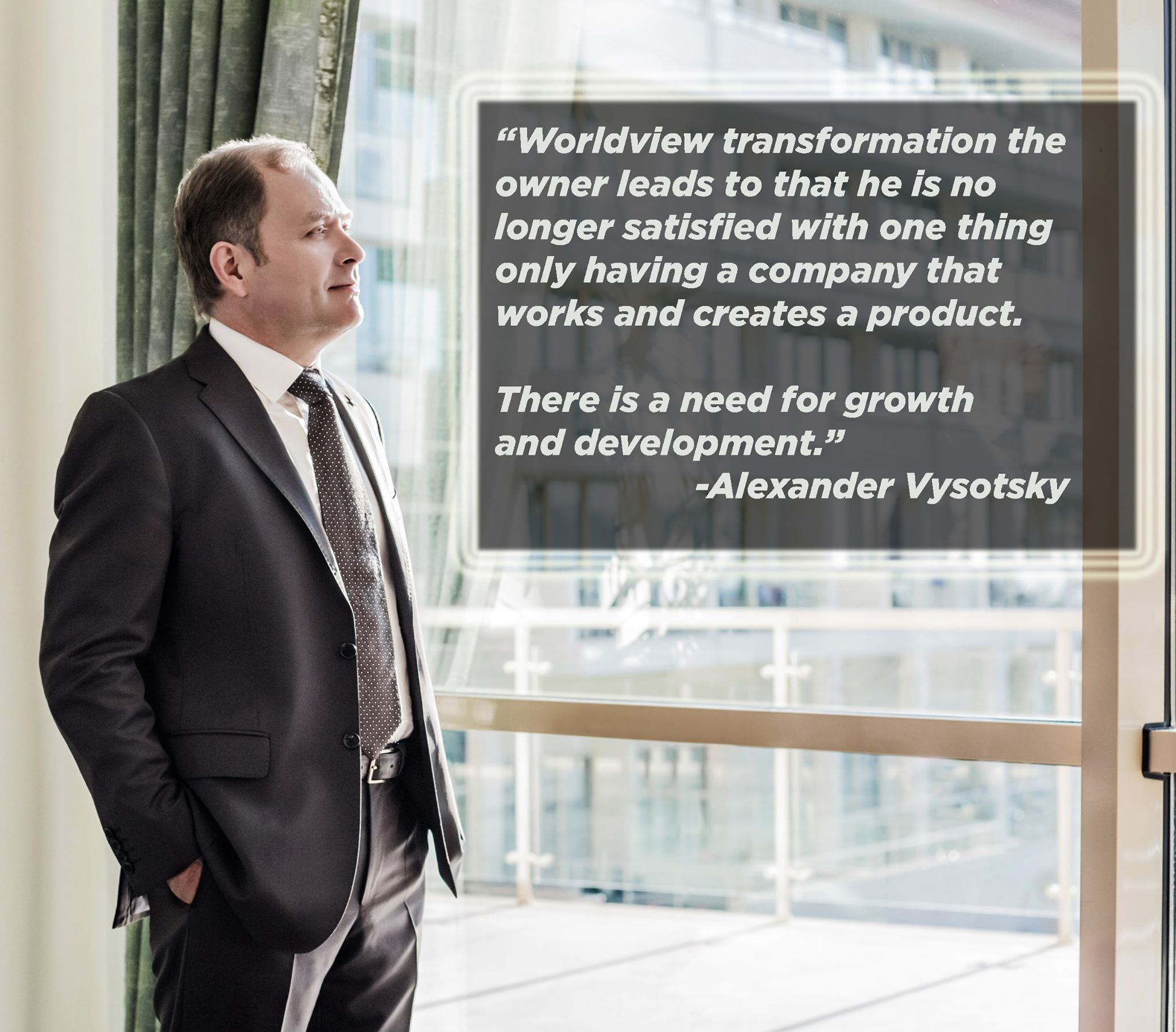In the post-Soviet space, a culture of entrepreneurship is only emerging. In the vast majority of cases, the owner is one in the first generation (for example, out of 150 Visotsky Consulting clients surveyed, only four are businessmen in the second generation and not a single one in the third). Many of these people went into business to earn money, to realize their professional ambitions. Not everyone planned to create a big business from the very beginning, they thought about serious development and consistency. But those that built the companies and became successful, having overcome all obstacles, inevitably began to change themselves.

It is precisely such a qualitative transformation among our entrepreneurs that is currently being accomplished through the study of management books, attending seminars, studying at consulting companies and spending leisure time with successful business owners.
There are many companies that have reached the age of fifty, whose owners are seriously rethinking their role and mission. But how exactly to change, in which direction they don’t know. There is no experience of previous generations, not even books for owners who have encountered such a problem, not very many. That is why 8 years ago I made a decision - I share my experience and knowledge through books.
Some are trying to solve it with the help of a “magical” hired director who will develop the company himself. This path is very dangerous because the owner loses power. He does not become more competent, but becomes weaker. It buys for itself freedom from management, not realizing that it actually transfers all the functions of the owner to the hired manager. Surely, with this approach, the business itself will change and the company will embody other ideas and implement a different strategy. This conversion can be compared to a change of ownership.
The second approach is not to give all its functions to the hired director, but to effectively separate them while retaining power. But for this you need to clearly understand what are the functions of the owner. About this I wrote the book “THE BUSINESS OWNER DEFINED”.
A successful owner knows well, thanks to which he was able to build a company. Even if he claims that his main tool is a positive attitude, then he uses it consciously, and it works. What are the main functions of the owner, and which of them can (and should) be handed over to the hired manager?
The most important and first component of the ideological function is the formation of an idea about the company's product: what we will produce, for which market and which client, in what form we will provide it. The one who believes that it is enough to define a product once, when creating a company, is mistaken. In fact, the owner needs to work on it all the time.
In most types of business, there is no need to gain such a frantic pace of transformation, as in the IT market. But work on improving the product is still necessary. And the owner needs to focus on this, just be a maniac in relation to his product. Especially if he leads a large group of creative people. As a rule, each of them wants to bring something of their own to the product, they have a ton of great ideas. And in such a situation, there is a danger of moving away from the original idea and forgetting what he wanted to do. Therefore, it is necessary to constantly return the process of product change in a certain direction.
The owner should take care of a single marketing concept, common standards in promotion, in style. And in time to stop the process of "unlimited" creativity of marketers, if it moves away from the ideology of the company. Otherwise, you can destroy the brand concept.
The second element of ideology is the goal of the company, that for which it exists. It is impossible to unite a group of people by telling them, for example: "We will issue notebooks." You can inspire, unite with creativity only those people who are burning with an idea, goal. And it should go beyond the company: its implementation should change something in society, be useful, give a new level of service, comfort.
It is necessary to create a mission of the company and constantly remind employees about it. Everyone has their own problems that work to disperse attention.
For example, this may be a game in which all units compete in the growth of key indicators. If quantitative indicators are determined for each of the divisions, then sellers can easily compete with manufacturers and accounting. We at Vysotsky Consulting play games at several levels - inside branches, branches, between all representative offices.
The ideological function cannot be given to the hired manager or shared with him, because this is the basis of the life of the company, the source of power of the owner. In order to clearly know your functions as the owner of the company, carefully read the book “THE BUSINESS OWNER DEFINED”.
